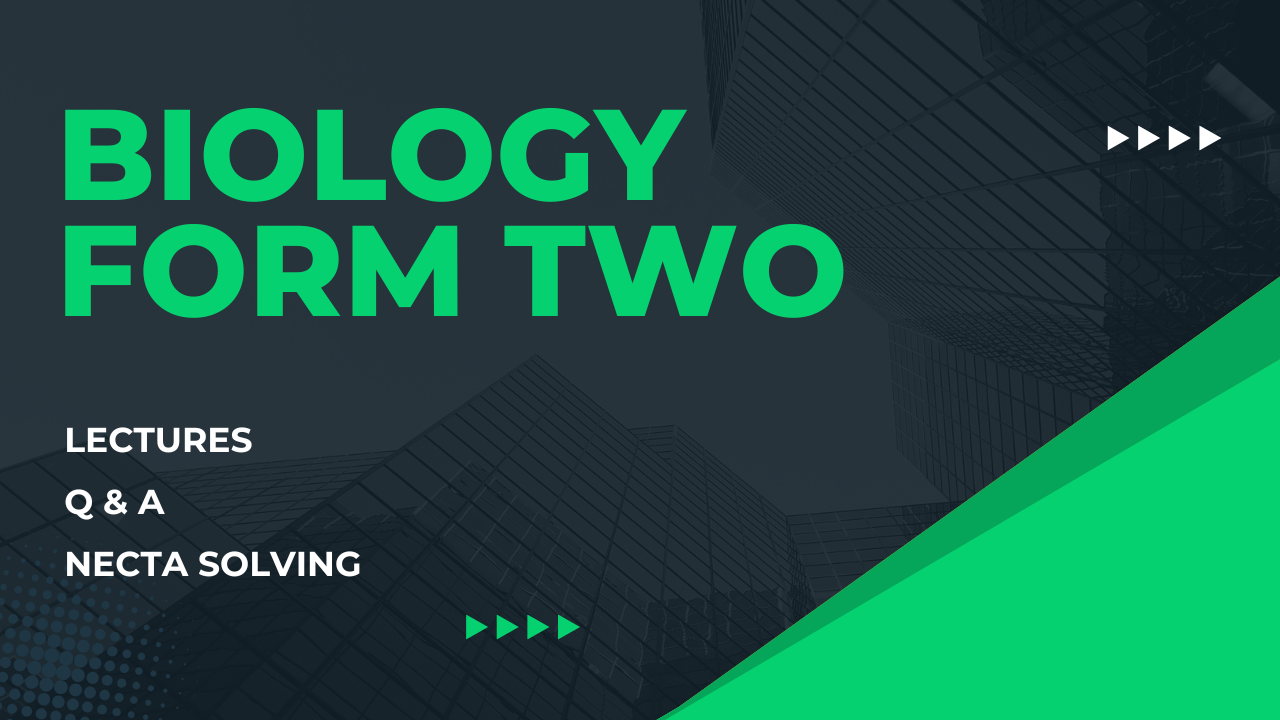To study the Biology Form Two course effectively on Edukea, students should ideally meet the following requirements:
1. Basic Knowledge of Form One Biology
- Students should be familiar with introductory biology concepts, such as cell structure, basic classification, and life processes like nutrition and respiration, as covered in Form One.
2. Access to Study Materials
- A reliable internet connection to access Edukea's online platform and course resources.
- A notebook for taking notes and organizing information.
- Access to a textbook or reference materials for Form Two Biology, if available, for additional reading.
3. Curiosity and Interest in Life Sciences
- An eagerness to explore biological concepts, as this course will involve observing, understanding, and analyzing various aspects of life sciences.
4. Study Tools and Supplies
- Basic stationery (pen, pencil, eraser, ruler) for assignments and note-taking.
- If possible, a simple microscope or access to a biology lab for practical exercises (though not mandatory, as visual aids and virtual labs can supplement practical lessons).
5. Computer or Mobile Device
- A computer, tablet, or smartphone to participate in online lessons, watch instructional videos, and complete interactive assignments on Edukea.
6. Time Management and Self-Discipline
- Biology Form Two covers a wide range of topics, so students will need to set aside regular study time and follow the course schedule to stay on track with assignments and exams.
Meeting these requirements will help students gain the most from the course, enhancing their understanding of biological concepts and preparing them for advanced studies in the future.
The Biology Form Two course on Edukea is designed to build foundational knowledge in the biological sciences, focusing on key concepts that help students understand the living world and the complex processes that support life. This course covers topics ranging from the basics of cell structure and function to the broader dynamics of ecosystems. Through engaging lessons and interactive exercises, students will gain insight into how organisms are classified, the systems that maintain life, and the relationships between organisms and their environments.
Key features of the course include:
-
Detailed Exploration of Life Processes: From nutrition and respiration to transport and excretion, the course breaks down essential processes in both plants and animals, helping students understand how organisms maintain balance and survive in diverse environments.
-
Introduction to Genetics and Evolution: Students will learn about the basics of heredity, including the roles of DNA and genes, as well as the principles of evolution, which explain how species adapt and evolve over time.
-
Ecology and Environmental Awareness: By studying ecosystems, food chains, and human impact on the environment, students develop an appreciation for biodiversity and the importance of conservation efforts.
-
Practical and Real-World Applications: The course encourages critical thinking and the application of biological concepts to everyday situations, preparing students for more advanced biology studies in the future.
This course provides a structured and interactive learning environment, ensuring that students not only understand biological theories but can also apply their knowledge to better appreciate the interconnectedness of all life forms.
